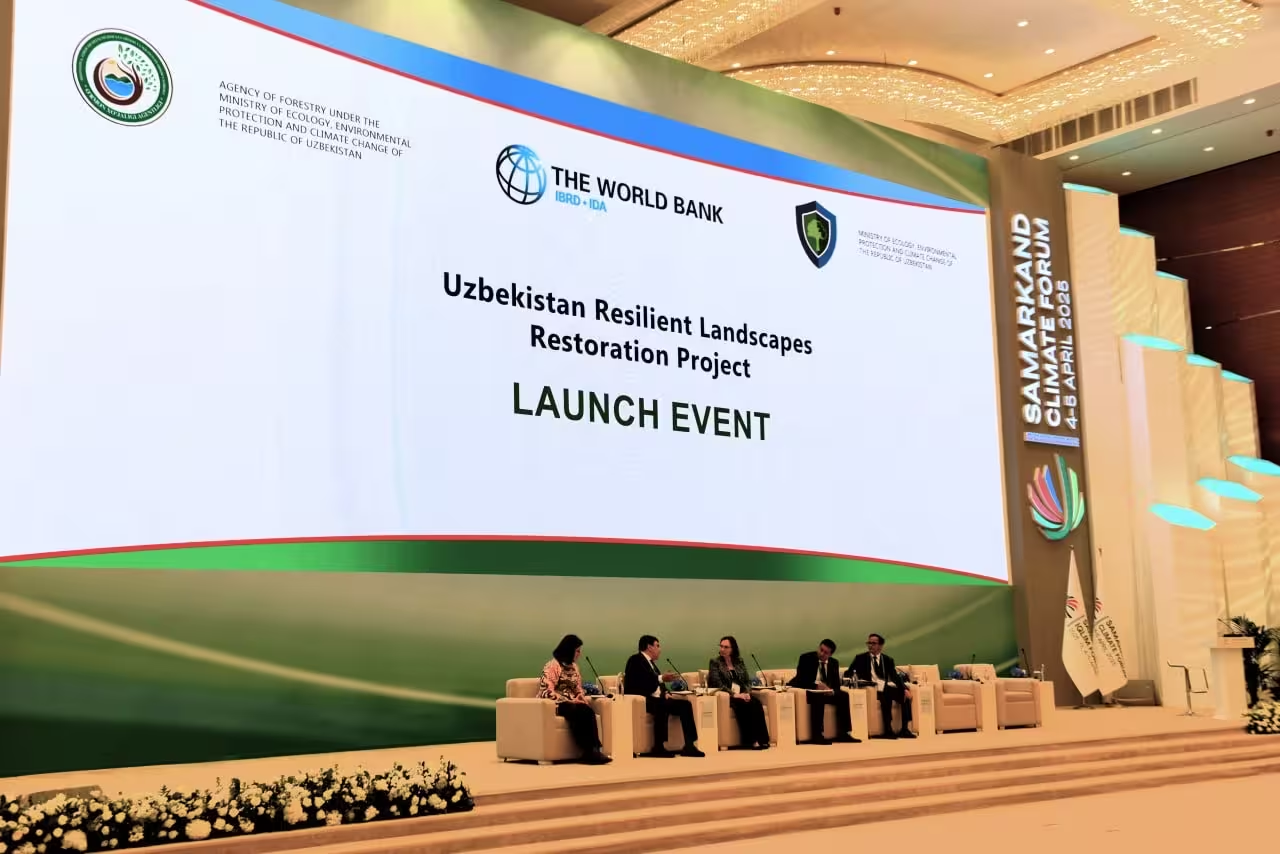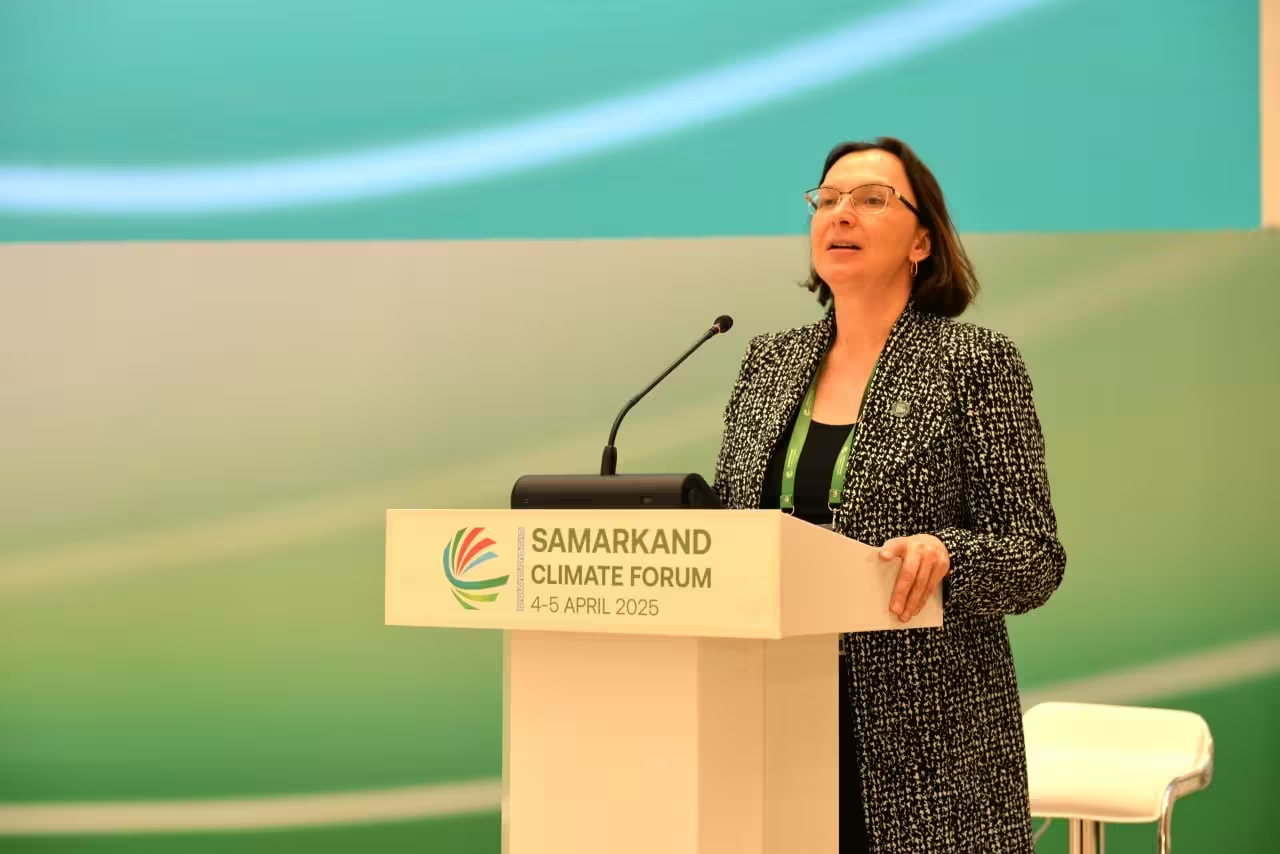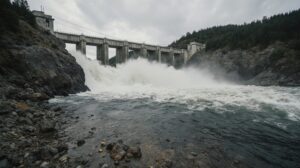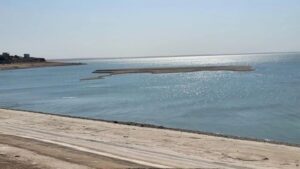On the sidelines of the Samarkand International Climate Forum, the Ministry of Ecology, Environmental Protection, and Climate Change (MEEPCC) of Uzbekistan and World Bank officials launched the Uzbekistan Resilient Landscapes Restoration Project (RESILAND). The project, which will receive a $153mn financing package from the World Bank, is part of a broader regional initiative aimed at rehabilitating degraded forests and lands across Central Asia.

The project is designed to strengthen sustainable landscape management, restore degraded forests, and enhance regional cooperation in the restoration of transboundary landscapes. The initiative will be implemented across six provinces of Uzbekistan, including Samarkand, Surkhandarya, Syrdarya, Jizzakh, Namangan, and Kashkadarya.
Aziz Abdukhakimov, Minister of Ecology, Environmental Protection, and Climate Change of Uzbekistan, emphasized the significance of the project.
“The project we launch today jointly with the World Bank will help the government achieve the goals outlined in the Concept for Developing Uzbekistan’s Forest System until 2030. This includes expanding the area of forests to 6.1mn hectares by the end of this decade,” said Abdukhakimov. “Through tree-based landscape restoration interventions, this project will enhance the resilience of landscapes, food systems, and infrastructure, while generating new employment opportunities and fostering investments in nature-based tourism.”

Uzbekistan’s forest resources are limited, with the Forestry Agency reporting that only 4.4mn hectares, or 10.6% of the total land area, is forested. Despite this, significant progress has been made in expanding forested areas over the past decade, particularly in the afforestation efforts on the dried seabed of the Aral Sea.
Under the presidential decree, issued in March 2024, efforts are underway to restore 176,000 hectares of natural forests, regenerate 38,500 hectares of pastures, implement water-saving measures in mountain forests, and create industrial forests on 5,000 hectares. These efforts are aligned with the broader goal of achieving sustainable forest landscape restoration in Uzbekistan.
Tatiana Proskuryakova, the World Bank’s Regional Director for Central Asia, highlighted the importance of regional collaboration.
“The World Bank is proud to support Uzbekistan’s efforts to restore degraded lands. Through this project, Uzbekistan will join the Resilient Landscapes in Central Asia Program (RESILAND CA+), a regional initiative that also supports Kazakhstan, Kyrgyzstan, Tajikistan, and Turkmenistan. This program aims to build resilience to climate change in both urban and rural areas across the region,” Proskuryakova said.

The Forest Agency, under the MEEPCC, will oversee the implementation of several key activities as part of the RESILAND project:
- Tree-based Interventions: The project will implement agroforestry, fruit tree planting, silvopastoral systems, and other landscape restoration initiatives across the six provinces. This will also create short-term employment opportunities for local communities through a Green-Wager Program.
- Business Training and Local Enterprise Development: Local farmers will receive training in natural resource management, which will help foster small and medium-sized enterprises focused on sustainable land management.
- Promoting Sustainable Tourism: Funds will be allocated to improve infrastructure in protected areas and forest reserves, including visitor centers, campgrounds, and recreational areas, to boost nature-based tourism.
- National Forest Inventory Development: The project will contribute to the establishment of Uzbekistan’s first National Forest Inventory and create an ICT platform to modernize the Forest Agency’s operations.
During the launch event, a memorandum of understanding was signed between the Forestry Agency and the Central Asian University of Environmental Studies and Climate Change (Green University) in Tashkent. The agreement will allow grant funding from the project to support the university’s research on forestry, including environmental, economic, and social aspects.




